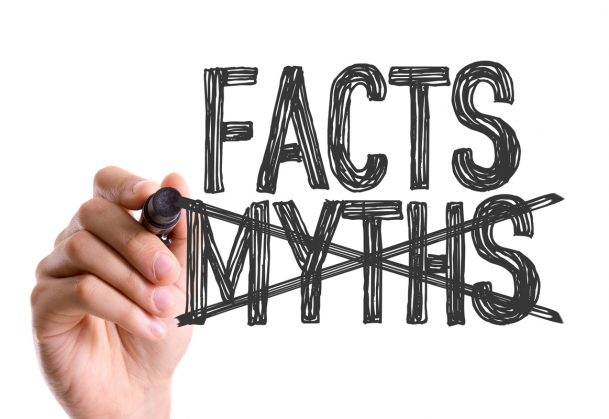In an era where misinformation proliferates with alarming rapidity, the role of clear, reasoned discourse becomes paramount. The Bahá’í Faith, with its foundational tenets emphasizing unity, truthfulness, and the importance of knowledge, provides a robust framework for addressing and debunking misconceptions. For members of this faith, defending their beliefs against misinformation is not merely an exercise in rhetoric but a spiritual imperative that aligns with their teachings on the importance of truth.
Central to the Bahá’í understanding of truth is the belief in the oneness of humanity. This foundational principle asserts that all people are inherently equal, and as such, they are deserving of respect and truthful engagement, particularly when addressing contentious or misunderstood topics related to their faith. The examination of misinformation within the context of Bahá’í teachings can be stratified into various categories, such as principles of communication, the obligation to promote education, and the intricate relationship between faith and reason.
To begin with, effective communication is integral to debunking misinformation. When faced with misconceptions about Bahá’í beliefs, practitioners are encouraged to approach conversations with a spirit of kindness and compassion. This stems from the Bahá’í teaching that emphasizes the necessity of seeing every individual as a mirror reflecting the divine attributes. Thus, engaging in dialogue through a lens of empathy fosters a more productive exchange. Utilizing phrases that acknowledge the other person’s viewpoint while simultaneously offering clarity regarding Bahá’í teachings can disarm potential conflicts and promote understanding. The approach should embrace a posture of humility, recognizing that not all misunderstandings stem from malice; often, they arise from a lack of knowledge.
Furthermore, education is heralded as a cornerstone of Bahá’í principles. The Bahá’í community is dedicated to the pursuit of knowledge, recognizing that enlightenment is the antidote to ignorance and misinformation. In the context of debunking falsehoods, Bahá’ís are urged to equip themselves with factual, well-researched information about their beliefs and the religion’s history. This education must not be static; rather, it should evolve continually as new sources of information become available. Bahá’í Faith emphasizes the use of discernment when interpreting texts and teachings, encouraging adherents to critically analyze the information they receive and disseminate.
The interaction between faith and reason is another vital aspect of addressing misinformation. Bahá’í teachings maintain that faith should not be in conflict with reason; instead, they are complementary. This philosophy invites adherents to engage intellectually with their beliefs while being firm in their commitment to the truth. Consequently, when confronted with misrepresentations of the faith, individuals are encouraged to utilize logical reasoning alongside spiritual insights to clarify misunderstandings. By articulating responses grounded in logic, one can illustrate the rational foundations of Bahá’í tenets, enhancing their credibility and considerably diminishing the sphere of misinformation.
Moreover, engaging in interfaith dialogue is a vital avenue for debunking misinformation. The Bahá’í Faith teaches that unity among the world’s religions is imperative for the advancement of society. By participating in discussions with members of other faiths, Bahá’ís can both learn about different perspectives and illuminate the truths of their own beliefs. Such interactions can serve as a platform for correcting misunderstandings and dispelling myths, as shared experiences often highlight common values and beliefs that transcend religious boundaries. These dialogues can educate both Bahá’í followers and individuals from other backgrounds, fostering a richer understanding of various faith systems.
It is noteworthy to underscore that the response to misinformation should be strategically designed, not reactive. Bahá’ís are encouraged to anticipate potential misconceptions regarding their faith and to address these proactively through various avenues—community education sessions, social media campaigns, or even engaging with local news outlets. Proactive measures embody the spirit of service central to the Bahá’í Faith, showcasing a commitment to uplifting others through knowledge dissemination. When misinformation is countered before it gains traction, it helps to build a more informed community.
Additionally, storytelling emerges as a potent methodology in combating misinformation. Narratives can captivate audiences, making the principles of the Bahá’í Faith accessible and relatable. Sharing personal stories about how Bahá’í teachings have enriched individuals’ lives—combating stereotypes and misconceptions—can be especially impactful. Such testimonials humanize the faith, inviting others to engage with it on a personal level rather than reducing it to abstractions fraught with mischaracterizations. Through the power of personal testimony, adherents can articulate the transformative nature of Bahá’í principles and thereby dislodge deep-seated misunderstandings.
In the digital age, where information is rampant, Bahá’ís must also harness the power of technology to combat misinformation. The rapid dissemination of information on social media platforms requires a strategic approach in countering false narratives. Thus, employing digital literacy becomes essential for followers to navigate the complexities of online dialogues. By utilizing diverse online mediums to share accurate information, Bahá’ís can reach wider audiences, effectively mitigating the spread of misinformation.
In conclusion, the Bahá’í teachings provide a comprehensive framework for debunking misinformation. Through effective communication, a commitment to education, the integration of faith and reason, and a proactive approach to dialogue, adherents can engage meaningfully with those harboring misconceptions. Emphasizing storytelling and harnessing the tools of modern technology also play critical roles in this endeavor. Ultimately, defending one’s faith transcends mere intellectual engagement; it embodies a profound commitment to promoting truth, unity, and understanding in a world often fraught with division.
